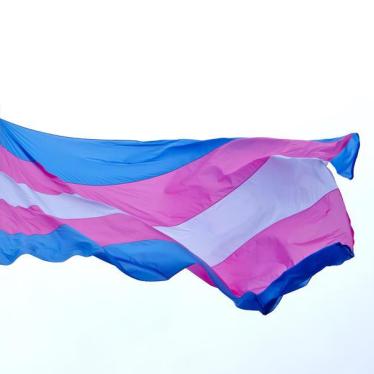As some state lawmakers search for new battles in the culture war, they have introduced bills to exclude transgender children from playing sports with their classmates. Lawmakers in North Dakota should reject these cynical attempts – and send a signal to young people that inclusivity, sportsmanship, and respect are as much the bedrock of sport as competition.
I was a terrible athlete as a child growing up in Fargo. I’m partially blind but still played soccer, basketball, and tennis. I lost so consistently that once, when a soccer game ended in a tie, my parents took me to McDonald’s to celebrate.
But what was impressed upon me during those years – and part of the reason I stuck with it – was that everybody understands that junior high and high school athletics are about much more than constantly winning. They’re how children spend their time, make friends, and participate in school spirit.
Schools don’t offer athletics programs for the sake of recognizing the fastest or the strongest kids. We invest in sports through our schools because they have an educational and a socializing function. They encourage young people to be physically active, they teach cooperation and teamwork, and they impart the value of hard work and determination in pursuit of a goal. Sports can create a safe environment for kids to express ambition and subvert the gender stereotypes that can pervade adolescence.
Dozens of studies have found that sports make a tangible difference in children’s physical and mental health. Sports can build and maintain healthy bodies, reduce childhood obesity, and improve mental health. Playing team sports can be especially important in reducing depression and other mental health issues for kids who face trauma and difficulty in childhood. They’re linked to better cognitive skills and academic achievement, and they’re critical for building peer relationships and socializing.
Transgender children are badly in need of that inclusion and participation. Data collected by the federal government suggest that transgender children are at an even higher risk of violence, substance use, and suicide than others. Transgender children are also at heightened risk of obesity and eating disorders, and can benefit from the social and physical benefits that team sports can provide.
Of course competition is healthy too. And it isn’t clear that physiological differences associated with sex are sufficiently pronounced to make a real difference in many junior high or high school sports. Excluding transgender children really doesn’t make other children any more or less competitive, but it immediately accomplishes one thing – it further isolates young transgender people and sends a clear signal that they’re unwelcome with their peers.
Across the United States, transgender children have been competing with other children for years. North Dakota doesn’t currently bar transgender children from athletics and things are working fine. Minnesota, South Dakota, and more than a dozen other states have had policies that allow transgender children to compete consistent with their gender identity for years, and the most apparent result is simply that sports have been more welcoming.
Typically, lawmakers have been unable to point to any issues arising from transgender kids participating in sports in their own state, fearing a wave of trans champions that has never materialized.
And in the rare instances in which transgender children have done well in sports, adults have set the wrong example by denigrating them publicly instead of congratulating them and celebrating their success.
These bills are harmful. Children will have to quit their teams, and many will be deterred from trying to play at all. They come at the expense of the friendships, self-esteem, and sense of belonging of thousands of transgender kids.
The loudest voices driving these bills are anti-LGBT groups that consistently oppose things like nondiscrimination protections and marriage equality, and have found that weaponizing high school athletics is a useful wedge issue to target transgender children. It’s telling that many of the proponents of these bills claim to be champions of women’s athletics, but only seem to be interested in the topic when it involves excluding transgender girls.
The sad reality is that victims of these campaigns are children – and not only the transgender children who work hard only to be attacked, but the others who are being pitted against their friends and teammates, and taught to resent not only their accomplishments, but their right to play.
North Dakota should resist the impulse to cave to bigotry. Lawmakers should make clear that this is a state where all young people are welcomed and celebrated – win, lose, or draw.









